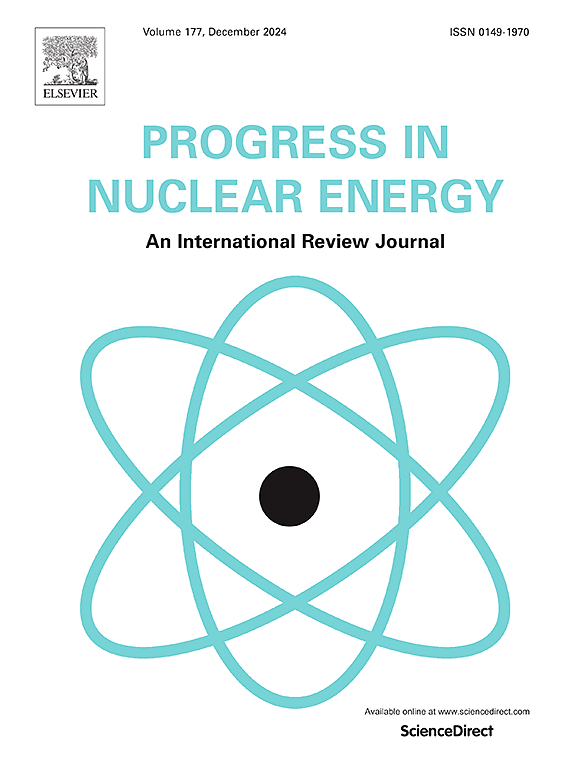Research on multi-objective optimization design of the nuclear island cold chain system in HPR1000 based on a new hybrid genetic algorithm
IF 3.3
3区 工程技术
Q1 NUCLEAR SCIENCE & TECHNOLOGY
引用次数: 0
Abstract
Currently, the design of the cold chain system for the HPR1000 nuclear island does not take a unified approach and largely relies on the design experience of the respective designers. The various subsystems contain numerous devices, and the cumulative design margins often result in many unreasonable parameters in the original design scheme of the cold chain system. To address this issue, this paper establishes a mathematical model for the cold chain system to assist in its design. Based on genetic algorithms and the simplex algorithm, adaptive relaxation constraint dominance relations and two improved NSGA-II multi-objective handling methods are introduced, leading to the development of a new hybrid multi-objective genetic algorithm. The performance of this algorithm is verified using optimized benchmark testing functions, thus allowing for the scientific optimization of the cold chain system design scheme. A sensitivity analysis is conducted on the design parameters of the ventilation system, refrigeration system, component cooling system, and seawater system within the cold chain system to explore the impact of these parameters on performance indicators. Optimization design calculations for the cold chain system are performed under safe and feasible conditions, resulting in an optimization scheme. The results indicate that the developed algorithm is effective in addressing the complex optimization problems of the cold chain system, and the optimized cold chain system can reduce weight by up to 18.4 %, volume by up to 18.6 %, investment costs by up to 5.7%, and system energy consumption by up to 7.5 %.
求助全文
约1分钟内获得全文
求助全文
来源期刊

Progress in Nuclear Energy
工程技术-核科学技术
CiteScore
5.30
自引率
14.80%
发文量
331
审稿时长
3.5 months
期刊介绍:
Progress in Nuclear Energy is an international review journal covering all aspects of nuclear science and engineering. In keeping with the maturity of nuclear power, articles on safety, siting and environmental problems are encouraged, as are those associated with economics and fuel management. However, basic physics and engineering will remain an important aspect of the editorial policy. Articles published are either of a review nature or present new material in more depth. They are aimed at researchers and technically-oriented managers working in the nuclear energy field.
Please note the following:
1) PNE seeks high quality research papers which are medium to long in length. Short research papers should be submitted to the journal Annals in Nuclear Energy.
2) PNE reserves the right to reject papers which are based solely on routine application of computer codes used to produce reactor designs or explain existing reactor phenomena. Such papers, although worthy, are best left as laboratory reports whereas Progress in Nuclear Energy seeks papers of originality, which are archival in nature, in the fields of mathematical and experimental nuclear technology, including fission, fusion (blanket physics, radiation damage), safety, materials aspects, economics, etc.
3) Review papers, which may occasionally be invited, are particularly sought by the journal in these fields.
 求助内容:
求助内容: 应助结果提醒方式:
应助结果提醒方式:


